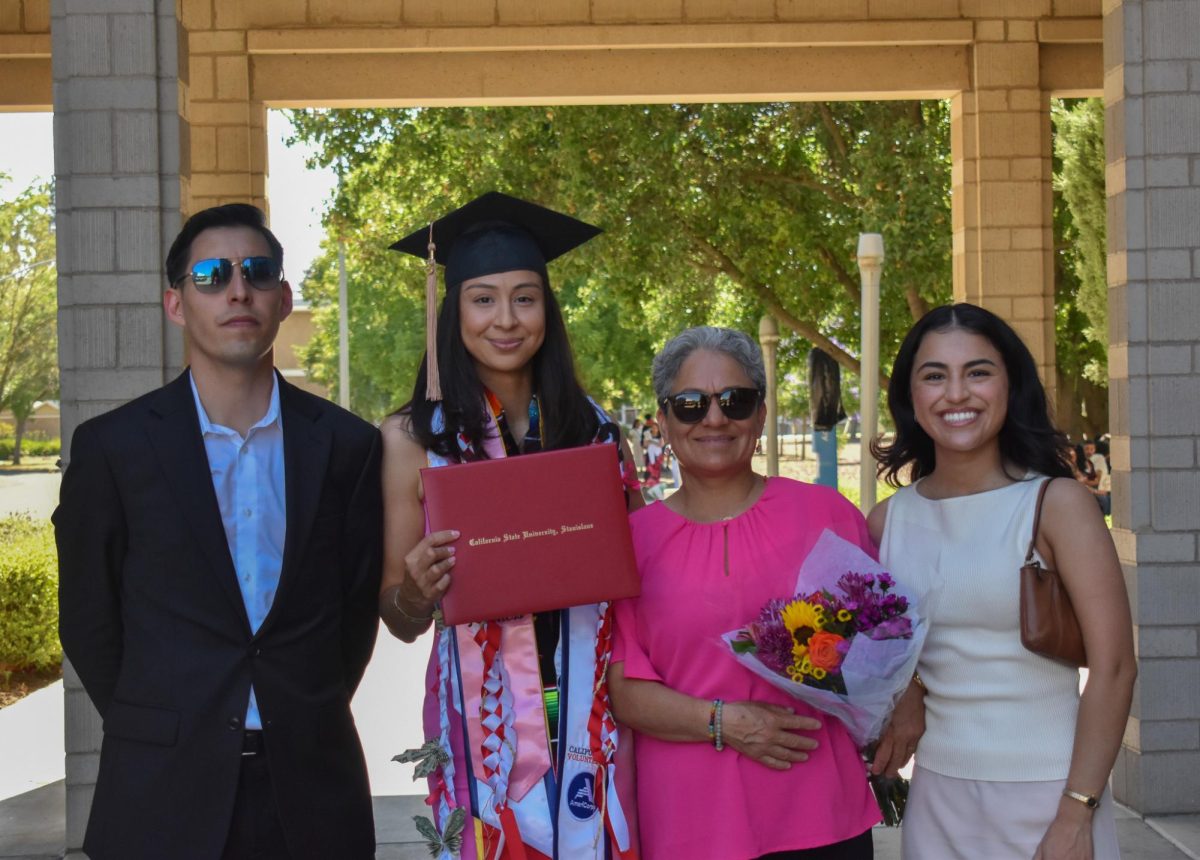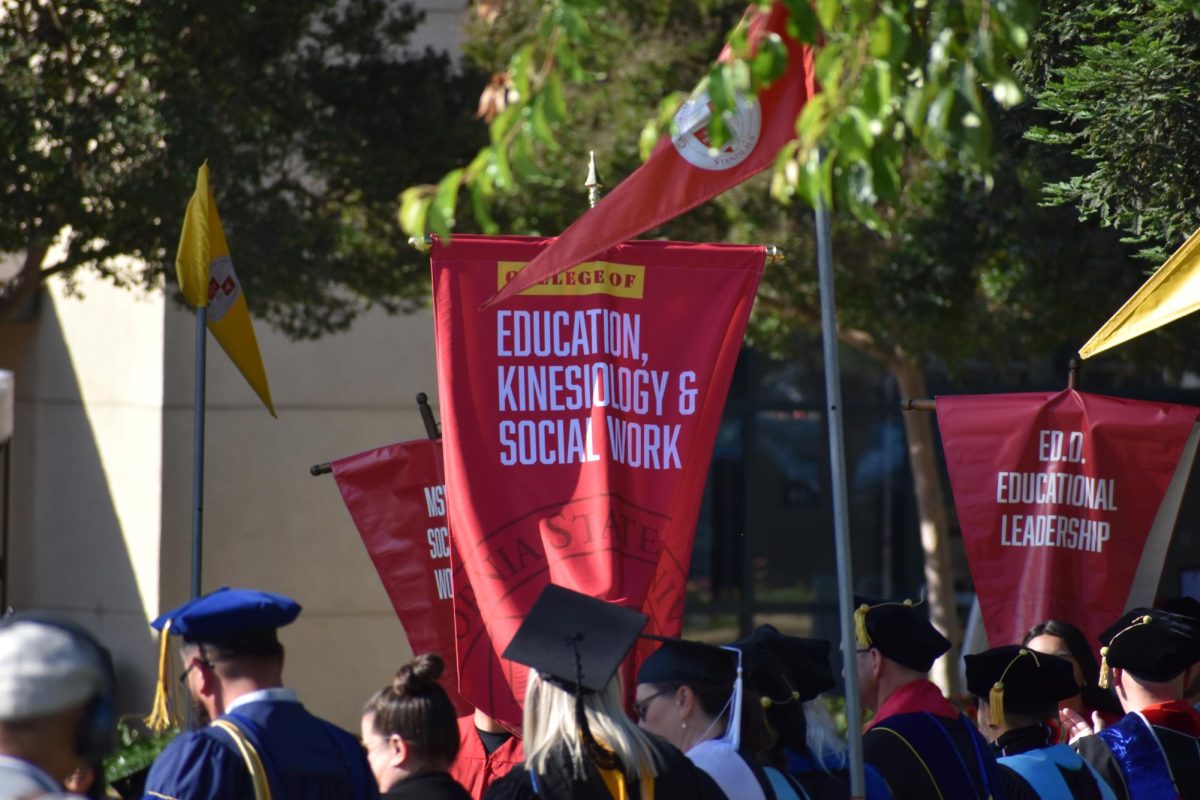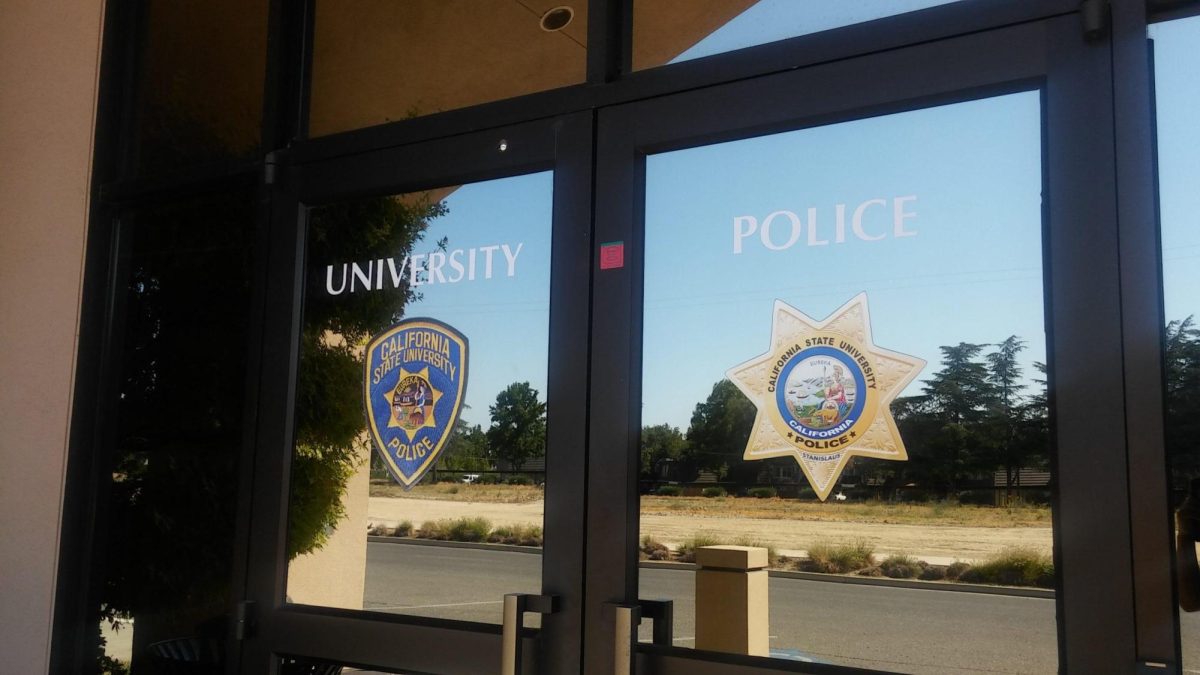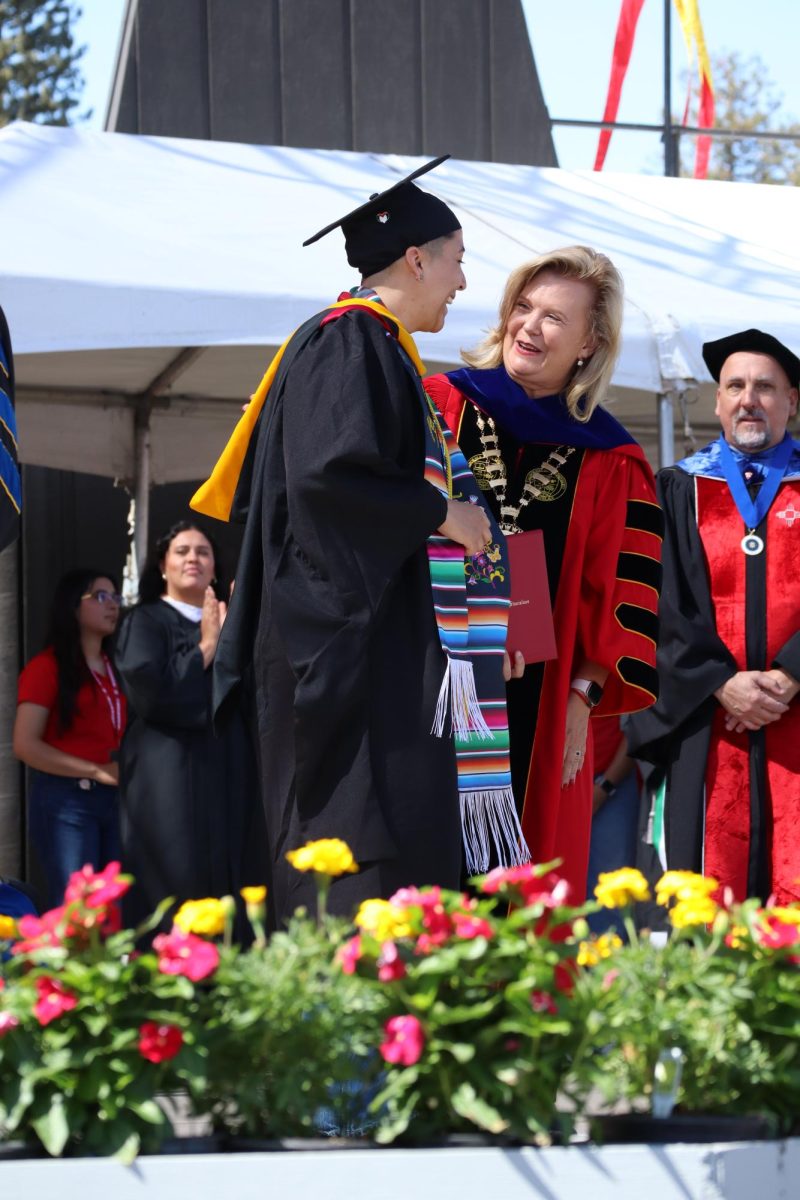BREAKING NEWS UPDATE: The CSU administration and the CFA announced that they reached a tentative agreement on January 22nd at 8:50 p.m.. Therefore, faculty will be returning back to work today, January 23rd, 2024. Stay tuned for a story later today with further details.
Beginning today and continuing through Friday of this week, faculty from across all 23 CSU campuses are halting work and striking until the CSU administration agrees to come to an agreement on issues such as living wages for lecturers and alleviating the burden of unwieldy class sizes.
Representing CSU Stanislaus’ chapter of California Faculty Association (CFA), CFA Chapter President and Political Science professor Dr. Dave Colnic stood with other striking faculty members, lecturers and professors alike, pushing for the CSU administration to compromise on these issues.
Of these issues, one of the most dire is the pay of entry-level instructors who are often signed onto temporary or part-time contracts that demand them to take on an exorbitant number of classes, often at multiple colleges or schools, to meet the costs of living.
“Right now, if you were teaching at Pitman High or Turlock High, you would make more than a full-time lecturer makes,” Colnic said. “It is critical because we’ve lost so many good people who just can’t afford to stay. We need to keep them here to engage with students, to do really important things, and help with the mission of the CSU.”
Dr. Justin Pack, himself a lecturer with a PhD in philosophy, recalled the difficulties of his situation when starting his full-time work at the base salary.
“This is my eighth year here and finally after eight years I’ve gotten a kind of pay bump,” he said, “But for seven of those years, we were available for poverty level benefits from the state.”
Dr. Diana Nevàrez, a professor of Liberal Studies, similarly recalled the hardships she faced when starting as a lecturer with a contract starting her at the lowest possible salary.
“As a lecturer, I never knew if I had a job the next semester,” Nevàrez said, “I’m hustling because I have kids, so I’m trying to figure out how I’m going to bring in an income without any classes.”
Both lecturers and professors alike also suffer from workload issues which harms both their own quality of life and are a drain on CSU students’ learning conditions. Instructors are often expected to take on an unmanageable number of courses or number of students within those courses to make ends meet.
Dr. Dave Colnic says that the CFA is demanding strict caps on the number of students that a single course can have.
The neutral third-party known as the factfinder, however, recommended returning to an early policy that would allow faculty members to submit their grievances for review in the case of poor working conditions.
The grievance process would allow faculty members who are experiencing hardships as a result of their workload or working conditions to make a case that could be investigated, reviewed, and resolved by the CSU administration.
The CSU administration, however, is unwilling to accept even the factfinder’s more conservative terms in their contract.
“If we integrated that into the contract, yes, we could grieve upon it,” Dr. Colnic said regarding what the outcome would be of incorporating the factfinder’s recommendation. “Right now, we could not grieve upon it. It’s not in the contract.”
Dr. Dave Colnic says that the CFA is willing to take future job action if the CSU administration is unwilling to compromise following this week’s strike.
“Ultimately, we want a contract that works for everyone,” Colnic said, “We think our demands are reasonable. I think the CSU will see it that way after this week or sometime this week. I’m hopeful that they will, at least. But if they don’t, you can expect more labor action.”
Categories:
Faculty Strike on Campus to Advocate for Living Wages and Better Learning Conditions
A drumline of striking faculty members circles the corner of Geer and Monte Vista in Turlock to advocate for better wages and working conditions. (Signal Photo/Brian Miske)
0
More to Discover
About the Contributor
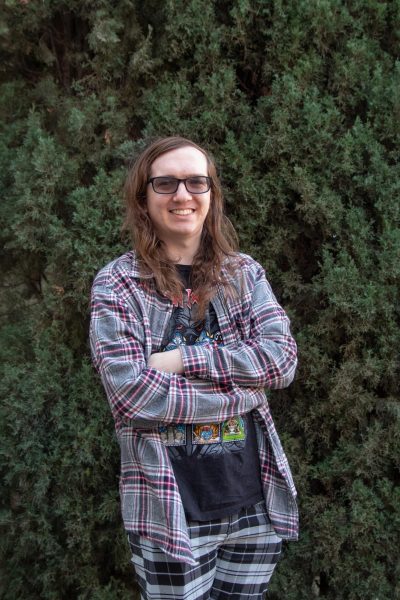
Nix Carbone-Deep, Senior Editor
Year: Graduate Student
Major: English
I love controversy and drama. Whenever something contentious or emotionally-charged pops up on-campus or in the wider political sphere, you can expect me to be there to cover it. I’ve reported on abortion access, labor disputes, CSU Board of Trustees’ decisions, federal court rulings, and more. However, I’m always most interested in how decisions like these, or sometimes even political indecision, affects everyday people and aim to shed light on their experiences. I’m into video games, tabletop roleplaying games, reading all kinds of genres (classic and contemporary novels, Renaissance drama, political theory, etc.), horror films, and history (political revolutions and the history of the sciences especially).









